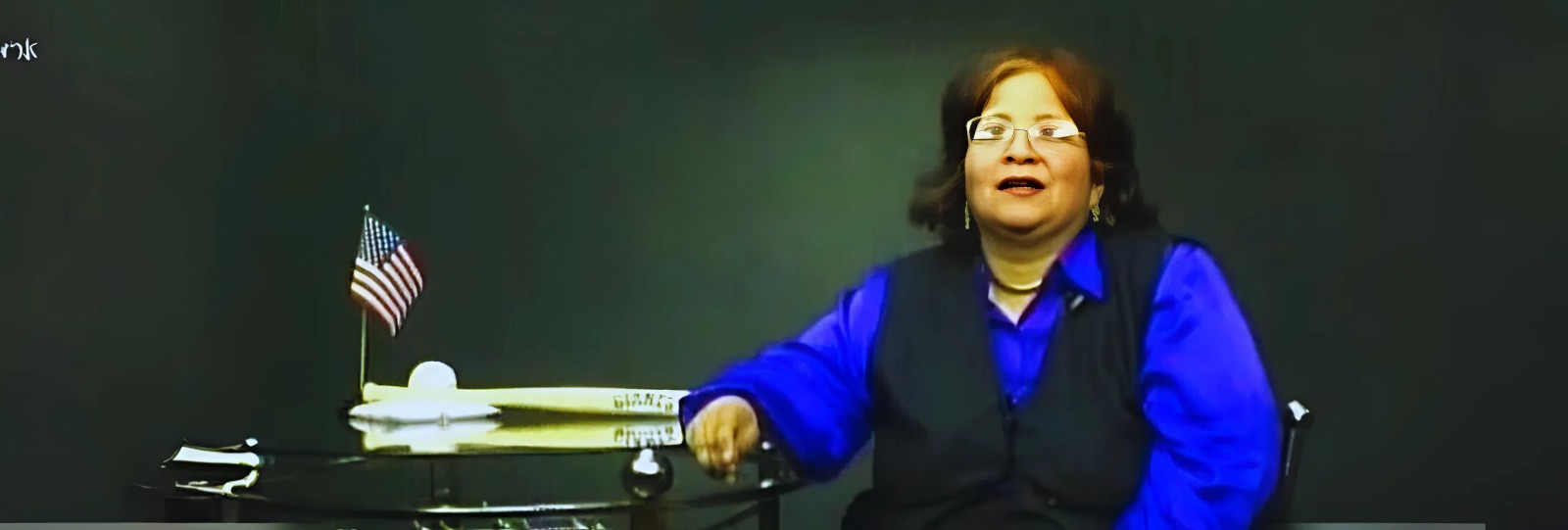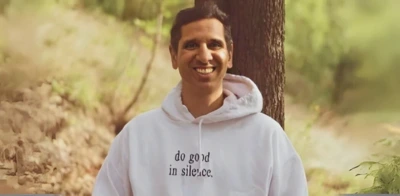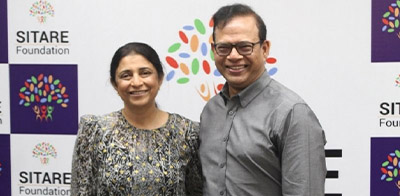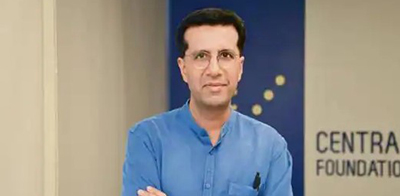Kumudini Gupta (better known as Kumu) reflects on her four-decade journey in America with pride—from a shy teenager arriving from Kuwait to becoming a recipient of a presidential award for community leadership and service, and a community leader whose story is preserved in the Smithsonian’s National Museum of American History. One incident she fondly recalls is her time as a volunteer with the President’s Challenge Program of the President’s Council on Fitness, Sports & Nutrition, when she coined the concept of MyThali, a healthy-eating initiative tailored for Indian Americans and inspired by the Obama administration’s MyPlate program. “My Thali allows Indians to get nutrition without giving up tradition,” she says, a tagline she believes resonated with Maya Soetoro-Ng, President Obama’s Indonesian-born half-sister and a University of Hawai‘i academic, who, according to Gupta, even introduced the concept to her class.
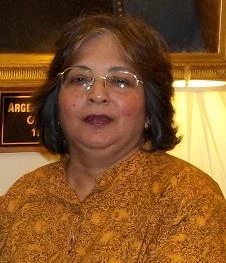
From Kuwait to America: An early leap
Born in India and raised in Kuwait, Gupta grew up in a close-knit household where education and tradition held central importance. Her father, employed with the Ministry of Telecommunications in Kuwait, instilled in her a strong grounding in Hindu sanskars that remained with her as she pursued education abroad. Her given name, Kaushalya, after Lord Ram’s mother reflects the deep Hindu values she was raised with, a grounding that stayed with her even as she grew up in Kuwait and later moved to the U.S.
Gupta’s parents had always encouraged her toward engineering, giving her not dolls but a Meccano set—a model construction kit of metal strips, nuts, and bolts that children use to build working structures. “My mother gave me a meccano to play with instead of a doll as my parents always wanted me to take up engineering as a career,” she recalls.
That early spark translated into academic success. She studied engineering in the United States and before that was consistently a top student in Kuwait, graduating among the top three across the Gulf Indian School system. “Every summer we used to visit India, growing up in Kuwait,” she remembers, a rhythm that kept her connected to her roots even as she prepared to journey abroad.
At 18, Gupta moved to New York to pursue higher education. The transition was not easy. Her first winter was spent shivering in her dorm room with open windows, and she coped with homesickness by cooking familiar Indian meals with fellow students. Yet she also embraced her new surroundings: she learned to drive, opened her first bank account, and even launched “Jhankar,” a campus radio show that introduced Indian music to Long Island.
As an international student in America, she pressed forward, studying engineering as one of the few women in her classes. She later earned a master’s degree in engineering at SUNY Stony Brook, receiving the department’s highest scholarship. Later, owing to her interest in psychology, she enrolled in a master’s program in counselling psychology at Notre Dame de Namur University (NDNU) in Belmont, California, but left after a year to pursue a work opportunity in her engineering field. Reflecting on those years, she says: “I’ve always been self-motivated.” Early in her career, the turbulence of the Gulf War cut off Kumu Gupta’s contact with her family for weeks, yet she stayed resilient.
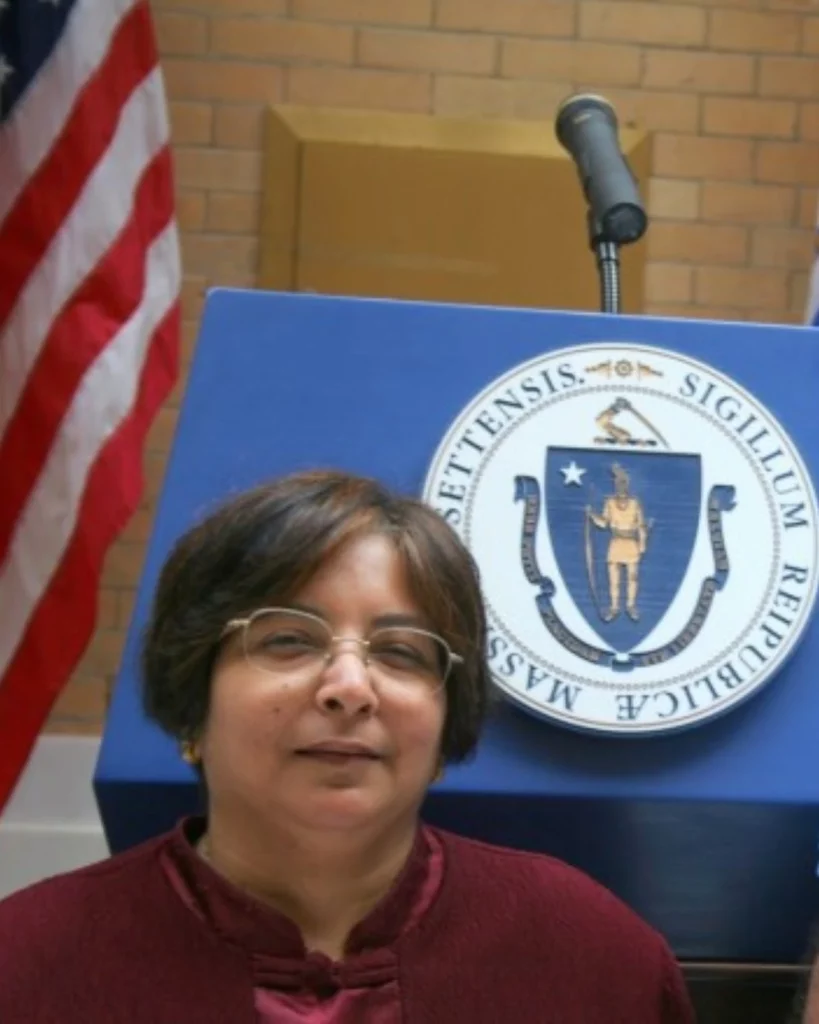
Building a career in America
Breaking into the tech industry during times of limited job opportunities, Gupta navigated the long and complex U.S. immigration process which was a 17-year journey from student visa to citizenship. She often shouldered responsibilities not just for herself, but also for her four younger siblings who followed her to America.
In 1998, a year after becoming a U.S. citizen, she experienced an unlikely milestone: performing the American national anthem at a San Jose Giants baseball game as the lead singer in a group. “The performance is now enshrined in the National Baseball Hall of Fame,” she says.
After a long career as an engineer in leading Fortune 500 companies, Gupta pivoted to consulting. “I took up consulting after a long career of working as an engineer, and that allowed me the freedom to do lots of volunteering work,” she explains. This independence enabled her to expand her civic and community commitments.
Her role in the President’s Fitness Programme from 2011–2017 became a turning point. She coined the concept of MyThali, a plate-based model that encourages balanced eating tailored to Indian traditions. “I was part of the programme to help Indian Americans lead a nutritious healthy life,” she says. In 2016, her leadership was recognized with the Community Leadership Award, making her the only recipient from Massachusetts that year.
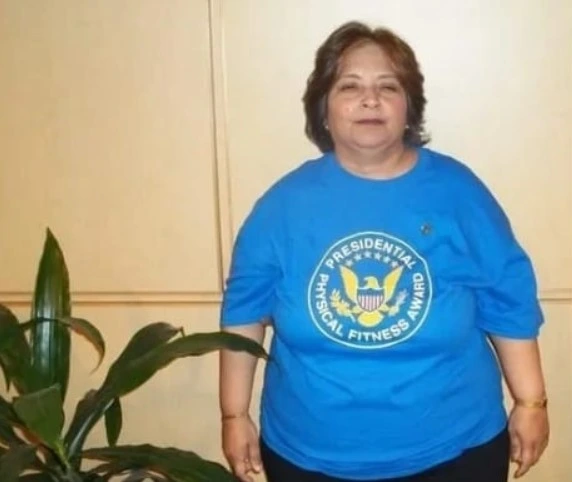
Public service and recognition
Gupta’s civic involvement has been impactful. In 2008, she became the first Indian American woman to serve as Vice Chair of a city Republican committee as a write-in candidate. She also worked with interfaith groups in Massachusetts, helping Hindu priests join hospital chaplaincies, co-chairing annual interfaith prayer breakfasts, and lobbying for initiatives like the issuance of a U.S. Diwali postage stamp, for which she later received a special citation from Quincy City Council.
She held honorary appointments to the Mayor’s Commission on Women and Human Rights Commission (where she was unanimously elected Vice Chair) and represented the Hindu faith at the Massachusetts Governor’s Inauguration Prayer Service. As an advisor to the Massachusetts State AAPI Commission, she was a guest speaker at Boston Children’s Museum’s first Diwali program and even secured a message from Senator Ted Kennedy for its inaugural Unity Dinner.
Her community work earned recognition from Senator Paul Harold’s Awards ceremony and nominations for the Mother Teresa Award, RFK Human Rights Award, and candidacy for the Ellis Island Medal of Honor.
Global advocacy and peace work
For over two decades Kumud Gupta has championed issues ranging from domestic violence prevention to the elimination of child labor, working for Nobel Laureate Kailash Satyarthi’s initiative, and promoting non-violence in collaboration with Gandhi Smriti in Delhi, where Mahatma Gandhi spent his final 144 days.
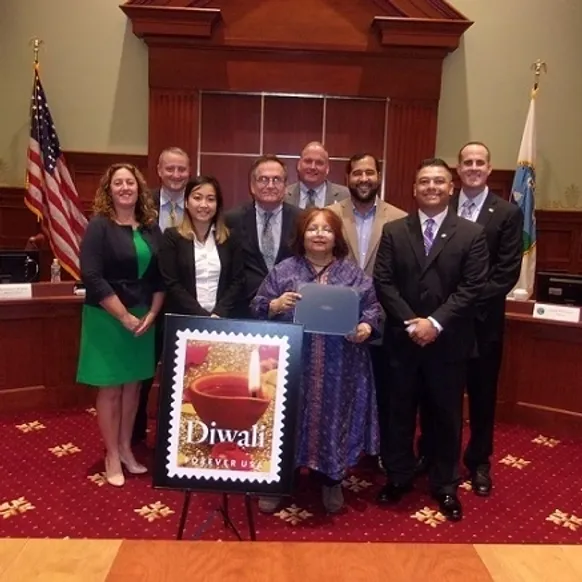
She founded the Global Peace Secretariat, a self-funded initiative with the goal to advance women’s rights, children’s welfare, and interfaith harmony. She informs that she continues to work closely with Gandhi’s descendants in India and South Africa, bringing Gandhian ideals into global platforms like the Parliament of the World’s Religions.
Gupta has also been engaged with the United Nations for many years, collaborating with agencies including UN Women, ILO, UNESCO, UNEP, WHO, and WMO. She has been active in the United Nations Association, serving as a speaker at the 50th anniversary in San Francisco, a panelist at the 58th, and chair and organizer of the 60th anniversary Universal Declaration of Human Rights Day in Quincy, Massachusetts. In recognition of her contributions, Congressman William Keating not only awarded her a Special Citation for strengthening U.S.–India relations but also recommended her to President Obama for appointment as a U.S. Delegate to the UN.
Cultural stewardship and faith
Gupta has remained deeply connected to her cultural and spiritual roots. As a child in Kuwait, she attended Bal Vihar sessions of Swami Chinmayananda and participated in Ramayan-based school plays. In the U.S., she has championed the inclusion of Hindu traditions in public life, from securing a month-long gubernatorial proclamation for Diwali in Massachusetts, to making it visible on local CBS television for the first time, and even celebrating it at the White House.
She has also represented the Hindu community in interfaith councils, including memorial services after global tragedies. Her efforts have been recognized by organizations such as the Vrindavan Preservation Society, which honored her with lifetime membership for her service to the temple community.
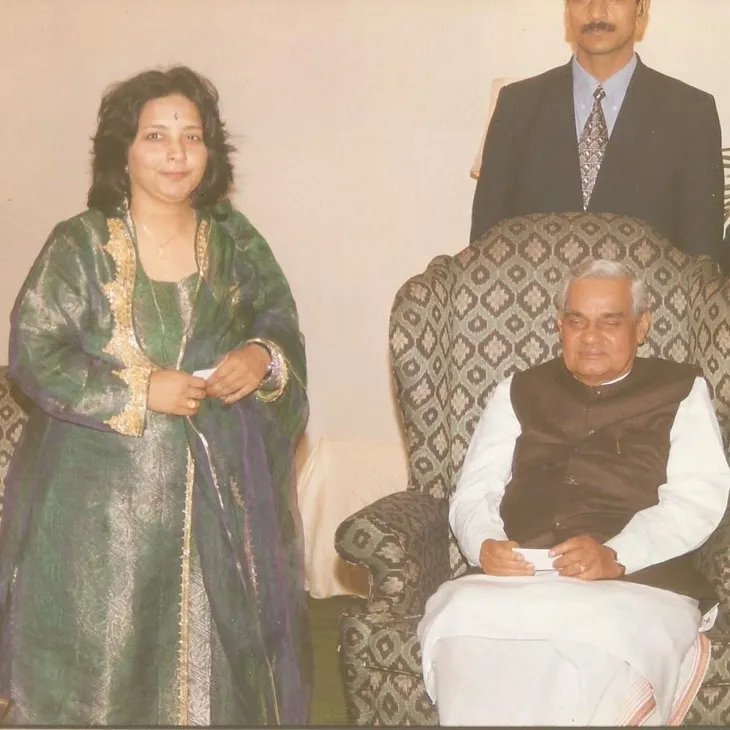
One thing that Kumu Gupta fondly remembers is attending a conference in New Delhi where former Prime Minister Atal Bihari Vajpayee was present. “It was the first such conference—an effort to gather NRIs in one place in India to celebrate their achievements and contributions, and to explore how they could support the country’s growth given the large global NRI population. It marked the beginning of the Pravasi Bharatiya Divas concept and the creation of a separate Ministry of External Affairs division for this,” she says.
Legacy and lasting impact
Gupta’s achievements have been recorded in enduring institutions: her oral history is preserved in the Smithsonian’s National Museum of American History, placing her alongside pioneers like Intel’s Vinod Dham. She is also part of a Guinness World Record feat for participating in Microsoft’s Women in Cloud initiative with over 126,000 women worldwide.
As a social commentator, she wrote for Times of India. She is an Albert Nelson Marquis Lifetime Achievement listee of the year 2017, an honour for individuals who have demonstrated community leadership.
Grounded in service
Despite the long list of accolades, Gupta defines her mission simply: “Helping others—especially women and children—is my labor of love.” For her, community service is not a career add-on but a calling that has guided her across continents, faiths, and political spaces.
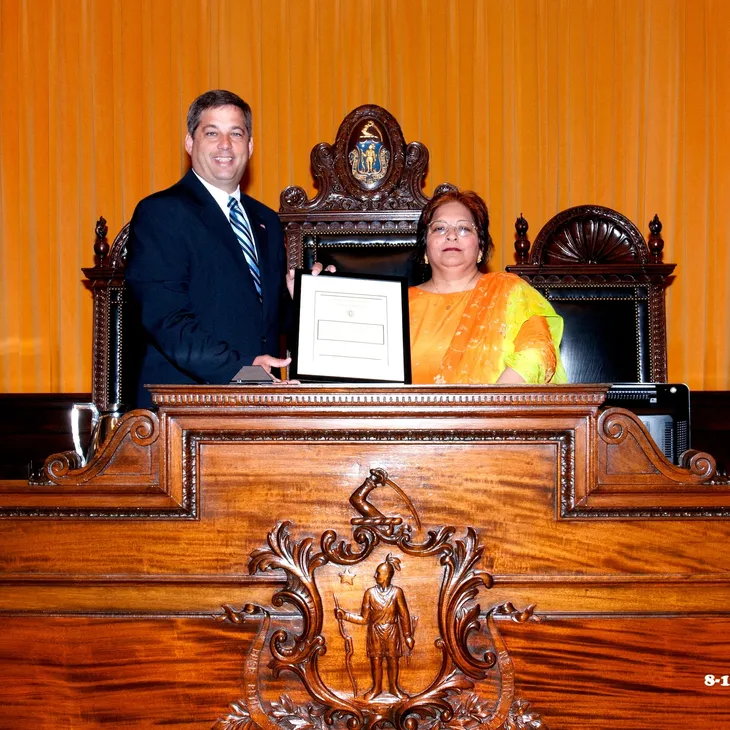
Kumu Gupta is incredibly humbled and honored to call herself a Nobel Peace Prize nominee of the year 2023. She has submitted her song on global peace for the 2026 Harry Belafonte Best Song for Social Change Award — a Grammy recognizing music with powerful social impact. From a young woman navigating her first New York winter to a community leader welcomed at the White House, Kumu Gupta’s journey is a reminder of how immigrants shape the spirit of America.
Read more impactful stories of giving back
